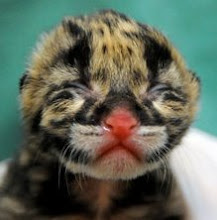
Day 1:
The weird thing is that I wasn't that hungry. I usually get up at 6:30 and eat breakfast around 9 at my desk. I had some hunger pains around 11, but they were not severe. I had prepared for the fast by eating just fruits, vegetables, and a few nuts the day before. (I could explain why, but it would probably gross you out.) I'd also been trying to make my diet as clean as possible the month before the fast. From what other fasters say, it makes a huge difference in how you feel during the fast. I had a very slight headache, which I might not have noticed if I hadn't been paying such close attention to my body. The reason you feel crappy when you don't eat is because your body is in withdrawal from sugar, caffeine, etc.
I was telecommuting the first day of the fast, and so was able to take it easy and take a nap after the workday was done. I took a 30 minute walk around my neighborhood and was entranced by all the different smells that I could sense so clearly. I felt fairly dehydrated during the day, though I was guzzling water. In the evening, I talked on the phone to take my mind off dinner. It worked well until I went to bed. I had thought I'd go to sleep early, but I felt wired and tense. My mind was racing and I would feel twinges of deep hunger. I was alone and getting a little freaked out. I got out of bed around 11:30 (after 27 hours of not eating) and had a small bit of fruit juice and a few almonds. I thought I would break the fast and eat breakfast the next day. I slept very well after that.
Day 2:
When I got up, I felt fine and decided to resume/continue the fast. I weighed myself and had lost 4 lbs from just the day before! I couldn't possibly have had a 14,000 calorie deficit by that point, and I was drinking tons of water, so I can't explain that.
I went in to the office and told a white lie to avoid going to lunch with my officemate. (I really didn't think it was a good idea to explain my fast to the office.) In the early afternoon, I felt sweaty, weak, and hungry. I now think that this was probably due to eating the night before. It got my metabolism running and my body kicked out of fasting mode. I had thought about doing a juice fast instead of a water fast, but according to
this book, taking juice during fasting means that your body consumes your muscles for fuel. If you consume 0 calories, your body goes into protein-sparing ketosis and you consume fat instead of muscle.
I didn't like the way I was feeling and decided to end the fast at dinnertime,48 hours after I started. I ate a bowl of noodles and veggies (a very small portion). I had expected to be ready to eat everything in sight, the way I feel right after I've recovered from a stomach flu, but I didn't have raging hunger. The next day I didn't feel like eating until noon, so that's what I did.
I would like to do another fast, but at a health center where they can tell me if what I'm feeling is normal, and I don't have to be alone and freaked out if my body is acting strangely. I think the fast was an important step towards helping me recognize real hunger and differentiate it from boredom or cravings. It seems a little easier to eat healthily now.
I work out almost every day and it bothered me to feel weak during the fast and not be able to exercise. Still, I think I learned a lot and I'm glad I tried it.











